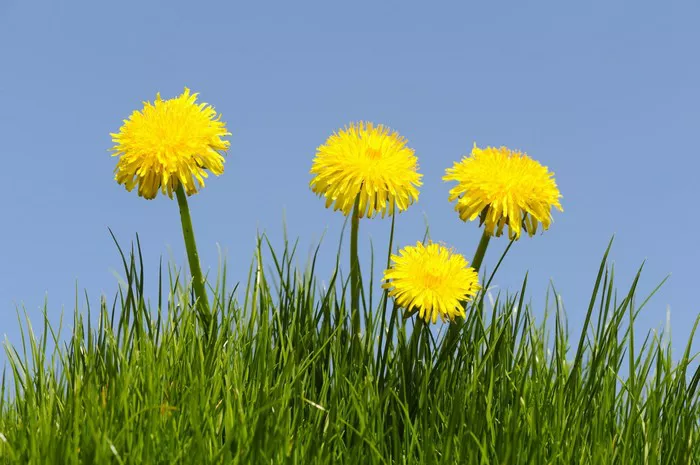Dandelions, often dismissed as pesky weeds, have long been overlooked for their culinary potential. Yet, beyond their reputation as lawn invaders, dandelions possess a wealth of nutritional benefits and culinary versatility. Among the various parts of this resilient plant, dandelion flowers stand out as a particularly intriguing option for culinary exploration. In this article, we delve into the question, “Can you eat dandelion flowers?” and explore the culinary uses, nutritional value, and potential health benefits of incorporating these vibrant blooms into your diet.
Understanding Dandelion Flowers
Dandelions (Taraxacum officinale) are widespread flowering plants found in temperate regions across the globe. Known for their bright yellow flowers and serrated leaves, dandelions are often considered nuisances in lawns and gardens. However, these plants have a long history of medicinal and culinary use, dating back centuries.
Dandelion flowers, characterized by their cheerful yellow petals and delicate flavor, are edible and offer a unique addition to various dishes. Before exploring their culinary applications, it’s essential to ensure that the flowers are harvested from areas free of pesticides and other contaminants. Additionally, it’s advisable to avoid foraging dandelions from locations where chemical treatments may have been applied.
Culinary Uses of Dandelion Flowers
Dandelion flowers are remarkably versatile in the kitchen, lending themselves to both sweet and savory dishes. Here are some creative ways to incorporate these sunny blooms into your culinary creations:
1. Salads: Fresh dandelion flowers can be added to salads for a pop of color and subtle floral flavor. Pair them with tender greens, such as spinach or arugula, and toss with a light vinaigrette for a refreshing dish.
2. Fritters: Dandelion flowers can be dipped in a light batter and fried to make delicious fritters. Simply coat the flowers in a mixture of flour, eggs, and seasonings, then fry until golden brown. Serve as an appetizer or snack with a dipping sauce of your choice.
3. Infusions: Infusing dandelion flowers in vinegar or oil can impart their delicate flavor to dressings, marinades, and sauces. Simply steep the flowers in the desired liquid for several days, then strain and use as needed.
4. Baked Goods: Dandelion flowers can be used to add a unique twist to baked goods such as muffins, scones, and pancakes. Incorporate the flowers into the batter or sprinkle them on top for a visually appealing touch.
5. Jams and Jellies: Dandelion flowers can be transformed into flavorful jams and jellies with the addition of sugar and pectin. Their bright color and subtle sweetness make them an excellent choice for preserving.
6. Herbal Teas: Dandelion flowers can be dried and used to make herbal teas, either on their own or blended with other herbs such as chamomile or mint. These teas are not only delicious but also offer potential health benefits.
Nutritional Value of Dandelion Flowers
In addition to their culinary appeal, dandelion flowers are packed with nutrients that can contribute to a healthy diet. Here are some key nutrients found in dandelion flowers:
1. Vitamins: Dandelion flowers are rich in vitamins A, C, and K, which play essential roles in maintaining vision, supporting the immune system, and promoting blood clotting, respectively.
2. Antioxidants: Dandelion flowers contain antioxidants such as beta-carotene and polyphenols, which help protect cells from damage caused by free radicals and oxidative stress.
3. Minerals: Dandelion flowers provide minerals such as calcium, iron, and potassium, which are important for bone health, oxygen transport, and electrolyte balance, respectively.
4. Fiber: Dandelion flowers are a good source of dietary fiber, which supports digestive health and may help regulate blood sugar levels and promote satiety.
5. Phytonutrients: Dandelion flowers contain various phytonutrients, including flavonoids and sesquiterpene lactones, which have anti-inflammatory and immune-boosting properties.
Health Benefits of Dandelion Flowers
In addition to their nutritional value, dandelion flowers may offer several potential health benefits:
1. Liver Support: Dandelion flowers have long been used in traditional medicine as a tonic for the liver. They are believed to support liver function by promoting detoxification and bile production.
2. Digestive Aid: The bitter compounds found in dandelion flowers may stimulate digestion and support overall digestive health. Consuming dandelion flowers may help alleviate symptoms of indigestion and bloating.
3. Diuretic Properties: Dandelion flowers have diuretic properties, meaning they can increase urine production and help eliminate excess fluids from the body. This may be beneficial for individuals with conditions such as edema or high blood pressure.
4. Anti-inflammatory Effects: Some research suggests that the phytonutrients found in dandelion flowers may possess anti-inflammatory properties, which could help reduce inflammation and support overall health.
5. Antimicrobial Activity: Dandelion flowers contain compounds with antimicrobial properties, which may help combat certain types of bacteria and fungi. Incorporating dandelion flowers into your diet may support immune function and help protect against infections.
Conclusion
Dandelion flowers are not only edible but also offer a range of culinary possibilities and potential health benefits. Whether enjoyed fresh in salads, infused in teas, or incorporated into baked goods, these vibrant blooms add a delightful touch to any dish. Rich in vitamins, minerals, antioxidants, and phytonutrients, dandelion flowers deserve a place in your culinary repertoire. So the next time you encounter these cheerful yellow blooms, consider harvesting them and exploring their culinary and nutritional potential. Bon appétit!


